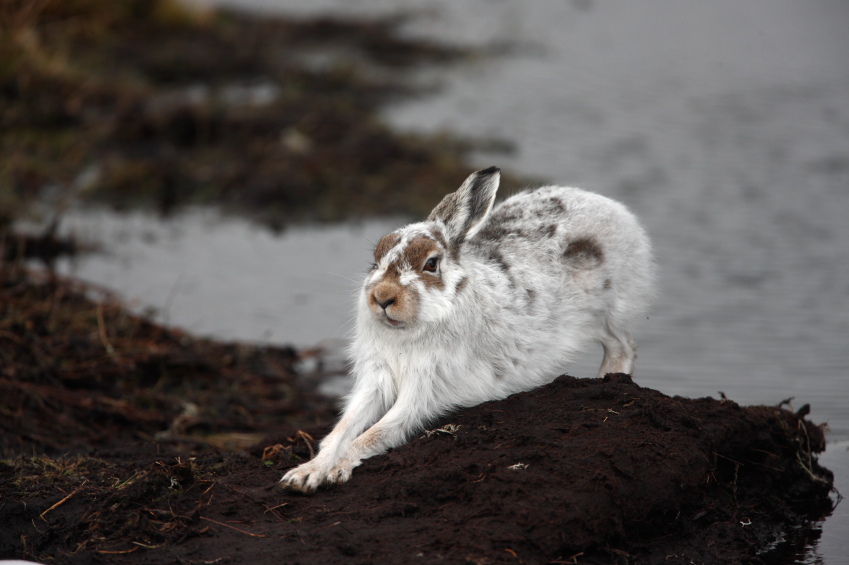Sweden’s mountain hares changing fur color too early

The fur of mountain hares in the northern county of Västerbotten is changing colors too early, which could put their lives in danger, according to the local Swedish Radio station there.
In order to camouflage themselves in the snow, the hares’ fur changes from brownish-gray to bright white, but when there is little snow, the white color makes them easier, rather than harder, to see.
Fredrik Dahl, who has researched mountain hares for the Swedish University of Agricultural Sciences in the northern city of Umeå, explains that they have followed hares using radio transmitters for six or seven years, and seen that in years without much snow, the mortality rate goes up.
He says the fur changes are tied to the amount of daylight and to temperature, to some extent, but that snow itself does not play a role.
Dahl says that if the climate becomes warmer and there are many winters without snow, then species who change color to camouflage themselves in winter will have a very difficult time surviving.
“It’s probably they will disappear, quite simply,” he says.
Related stories from around the North:
Canada: Fighting to protect bird habitat in North America’s boreal forest (SLIDESHOW), Eye on the Arctic
Finland: New measures to protect the Saimaa seal in Finland, Yle News
Iceland: Endangered whale meat shipped from Iceland via Halifax, The Canadian Press
Norway: Rapid growth in Svalbard walrus population, Barents Observer
Sweden: Rare dolphin spotted on Sweden’s west coast, Radio Sweden
United States: Polar bears sniff pawprints to find clues about potential mates: study, Alaska Dispatch



